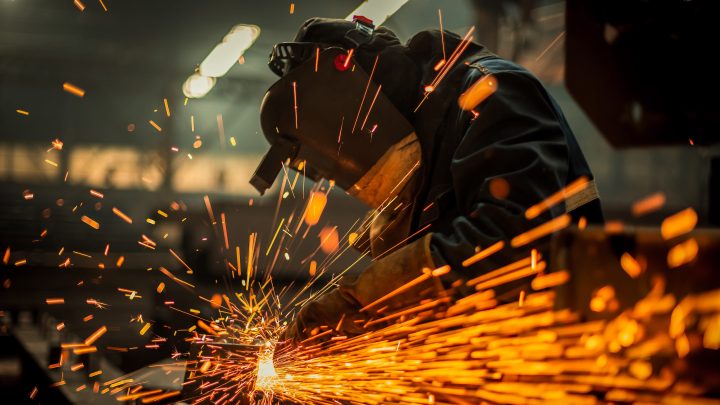
Businesses are spending to boost productivity, regardless of higher interest rates
Businesses are spending to boost productivity, regardless of higher interest rates

Manufacturing has been in kind of a slump lately. Blame high interest rates for deterring consumers and businesses from buying big-ticket items on credit. But there’s not much sign of those doldrums in today’s durable goods orders numbers from the Census Bureau: They shot up nearly 5.5% in November, way more than economists were expecting, and reversing October’s big decline.
As we have reported at Marketplace, those numbers can be skewed a whole bunch by aircraft orders — and, sure enough, Boeing got a lot of orders for planes in November.
But orders for electrical equipment, appliances, machinery and computers were up, too.
And a crucial component of today’s numbers — for “core capital goods,” which are big, one-off buys instead of regular purchases — rose 0.8% in November after falling the two previous months. That’s basically business investment in new tools and equipment to increase productivity and boost the bottom line.
Like Matot, a 136-year-old dumbwaiter manufacturer near Chicago. Company president Jim Piper is shopping for investments to pump up productivity.
“We’re in a fortunate position because we’re coming off a record year,” he said.
The company’s industrial lifts are in high demand, so Piper’s looking to buy equipment that’ll take pressure off the 40 workers in his shop.
“As an example, I have a paint-booth that was purchased six years ago, that is no longer of the size and scale that can accommodate the throughput we need,” he said.
Piper says each part of his operation — cutting, welding, assembly, engineering design — needs new equipment or software. Which he says he can afford, in spite of the high cost of borrowing.
“The interest rates are really not a huge factor,” he said. “We’re fortunate that we have dry powder that we can use for investing. We may not need to tap too many lines of credit or look at loans.”
Hanover Coop Food Stores is also looking to invest in new technology.
The grocery chain runs seven stores with 300 employees in New Hampshire and Vermont. Director of Finance Jamie Shechtman says the company’s facing an aging workforce, at the same time wages have shot up.
“We got self-checkouts in two of our locations, and we’re looking at putting self-checkouts in our other locations, that allows one cashier to oversee a bank of four self-checkouts,” they said.
That’s a capital investment of about $150,000 per store. And the chain is looking at yet more automation.
“Electronic shelf tags are something that would allow us to push through price changes with very little manpower,” Shechtman said.
It’s a big upfront investment, they said, but it’ll free up staff from posting prices manually so they can do things that add more value to the operation.
There’s a lot happening in the world. Through it all, Marketplace is here for you.
You rely on Marketplace to break down the world’s events and tell you how it affects you in a fact-based, approachable way. We rely on your financial support to keep making that possible.
Your donation today powers the independent journalism that you rely on. For just $5/month, you can help sustain Marketplace so we can keep reporting on the things that matter to you.











